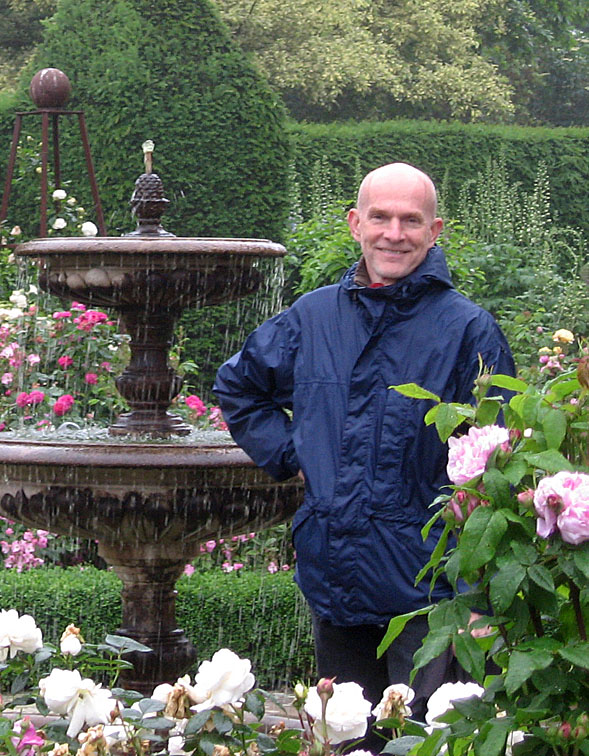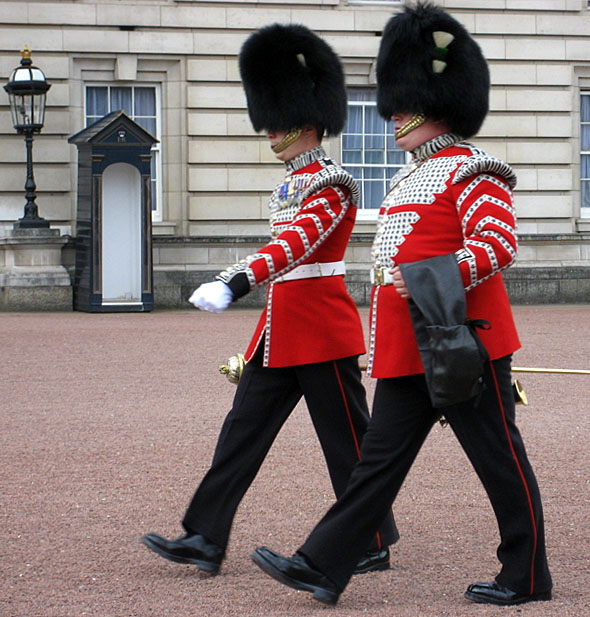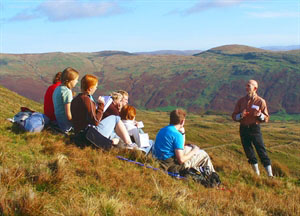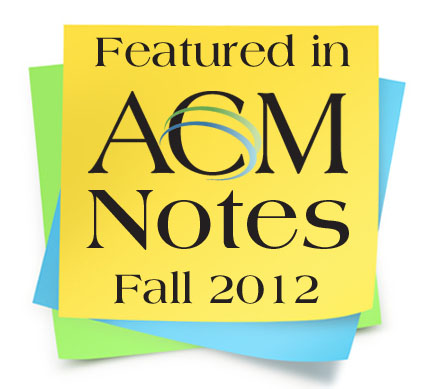“One of the joys of teaching abroad is that students are more keyed to their surroundings,” said Mark Z. Muggli, an English professor at Luther College. “Being in a different environment, their antennae just open up, so there really is an opportunity to capture that and build on it with the academic work.”
He speaks from experience, having led study abroad programs to a variety of places in England and to Greece. In January, Muggli will head off campus again to combine one of his favorite teaching destinations – London – with his passion for theatre as Visiting Faculty Director of the London & Florence: Arts in Context program.
 Mark Z. Muggli in a typical English garden.
Mark Z. Muggli in a typical English garden.
Muggli said he has designed his course for the program, “Embodying Spaces: Contemporary English Theatre in its Historical, Architectural, Cultural, Geographic, and Moral Settings,” to use theatre to help students make connections among all aspects of the program.
“The course is a part of a holistic experience,” he explained, “not a narrowly academic, theatrical study, but really a metaphor for looking at the whole experience the students are having in London.”
In the program’s distinctive format, students split the semester between London and Florence with a week in between the two cities for personal travel. They take two courses during their seven weeks in London – the Director’s course focused on theatre and “London as Visual Text,” taught by Andrew Kennedy, an experienced local scholar and teacher. When they’re in Florence, students choose a pair of courses from among several electives and study Italian language.
During a typical week in London, according to Muggli, students will see two plays and have class time to discuss the performances and the texts of some of the plays. He will also encourage them to seek out and attend other plays from among the wide range of theatre productions and venues in London, as well as to constantly observe what’s going on around them as they travel throughout the city.
Muggli, who has taught courses in Shakespeare for the last 35 years, brings a deep appreciation for the connection between text and performance to the study of drama. Indeed, he teaches a course at Luther in which students read and discuss Shakespeare plays for the first half of the semester and then spend the remaining weeks staging one of them in the style of an Elizabethan traveling troupe, with a bare stage and minimal costumes.
 The Globe Theatre in London.
The Globe Theatre in London.
Photo by Caroline Lowe
His consciousness of staging was sparked, in large part, by participating in a National Endowment for the Humanities seminar on Shakespearean stage practices that included two weeks at the Globe Theatre in London. This has led him to explore staging by other dramatists in other time periods, and to look at ways that theatricality is used outside the confines of formal theatre productions.
“I’m hoping that seeing theatre and talking about theatre will make us more aware of London as a kind of public theatrical setting,” Muggli said. “Once you start thinking of theatre as more than only what happens on formal stages, a foreign city offers you a lot of opportunities for that. If you see the Beefeaters at the Tower [of London] or you see the changing of the guard at Buckingham Palace, you know that this is a stage on which these people are acting, but street fairs and sales booths on the street have a large theatrical dimension to them, too.”
Churches and religious services – with the attendant rituals, music, and costumes – can also be viewed as theatrical events, Muggli noted, and he expects to include visits to St. Paul’s Cathedral and Westminster Abbey as part of the course.
 Changing of the guard at Buckingham Palace.
Changing of the guard at Buckingham Palace.
Photo by Caroline Lowe
He likes to give assignments that send students out on their own to discover London and find examples of theatrical expression in everyday life. One such assignment, Muggli suggested, might be to have students visit one of the city’s many street markets, such as those at Notting Hill or Camden, and write a journal entry about the excursion. Another could be to have students choose a park or other green space in the city and write about how the residents use it, the way they dress when they are there, and the kinds of activities they pursue.
“It’s helpful for students to see these gradations of theatre, from the most formal, where you pay money and the lights are darkened, to these semi-theatrical, staged moments,” Muggli said. An example of the latter would be a street vendor engaging passersby who, in turn, might respond by looking at what’s for sale.
From there, Muggli noted, we can begin to see theatrical dimensions in the ways we present ourselves to others and relate to the world around us. “I do think it helps us understand why theatre has been such an important art throughout history,” he said. “It has such basic connections to what we do on a daily basis.”
To bring out other dimensions of the theatrical experience, Muggli plans to have students travel on their own or in small groups to the theatres when the class attends a play, and to pay attention to the neighborhood surrounding the venue.
 Leading an off-campus program in England, Mark Z. Muggli discussed the history of walking with his students on site in the Lake District.
Leading an off-campus program in England, Mark Z. Muggli discussed the history of walking with his students on site in the Lake District.
“It really is very different to go to the Royal National Theatre, in its sculptured setting along the Thames, or the glitzy lights of the West End theatres, than it is to go up to the Lion Pub in Islington and climb up the little narrow staircase to the second floor and sit on benches and watch a play,” said Muggli. “They’re all plays, but the clientele is different, the experience you have as you walk to the place is different, the sense of how you act when you’re in the place is different, and it just makes it a different theatrical experience.”
Examining the larger environment surrounding the performance of a play, he said, raises other questions. What does the audience bring to the play, and how does that change the experience? Why did this particular theatre in this neighborhood at this time decide to mount this play?
Students, Muggli noted, are inevitably engaged by the quality, depth, and variety of theatre that London offers. “My experience is that even students who don’t know they’re interested in theatre, when they’re really given first class experiences like this, they rise to it,” he said.
Engagement – with theatre, the city, and students – is what attracted Muggli to the London & Florence program.
“Part of the excitement of this teaching is that you, as a teacher, are experiencing this in a new way, as well,” said Muggli. “When I’m walking to the theatre, I’m noticing things, too. So the opportunity to meet students really as peers, trading our insights into what we saw and what it meant, is part of the thrill of teaching abroad. We are peer travelers, and I think that’s a really important part of the program.”
Photos, except as noted, are courtesy of Mark Z. Muggli.
Links:
- London & Florence: Arts in Context
- Mark Z. Muggli’s bio on the ACM website and Luther College faculty profile
- Syllabus for the course “Embodying Spaces: Contemporary English Theatre in its Historical, Architectural, Cultural, Geographic, and Moral Settings”
- Syllabus for the course “London as Visual Text”









